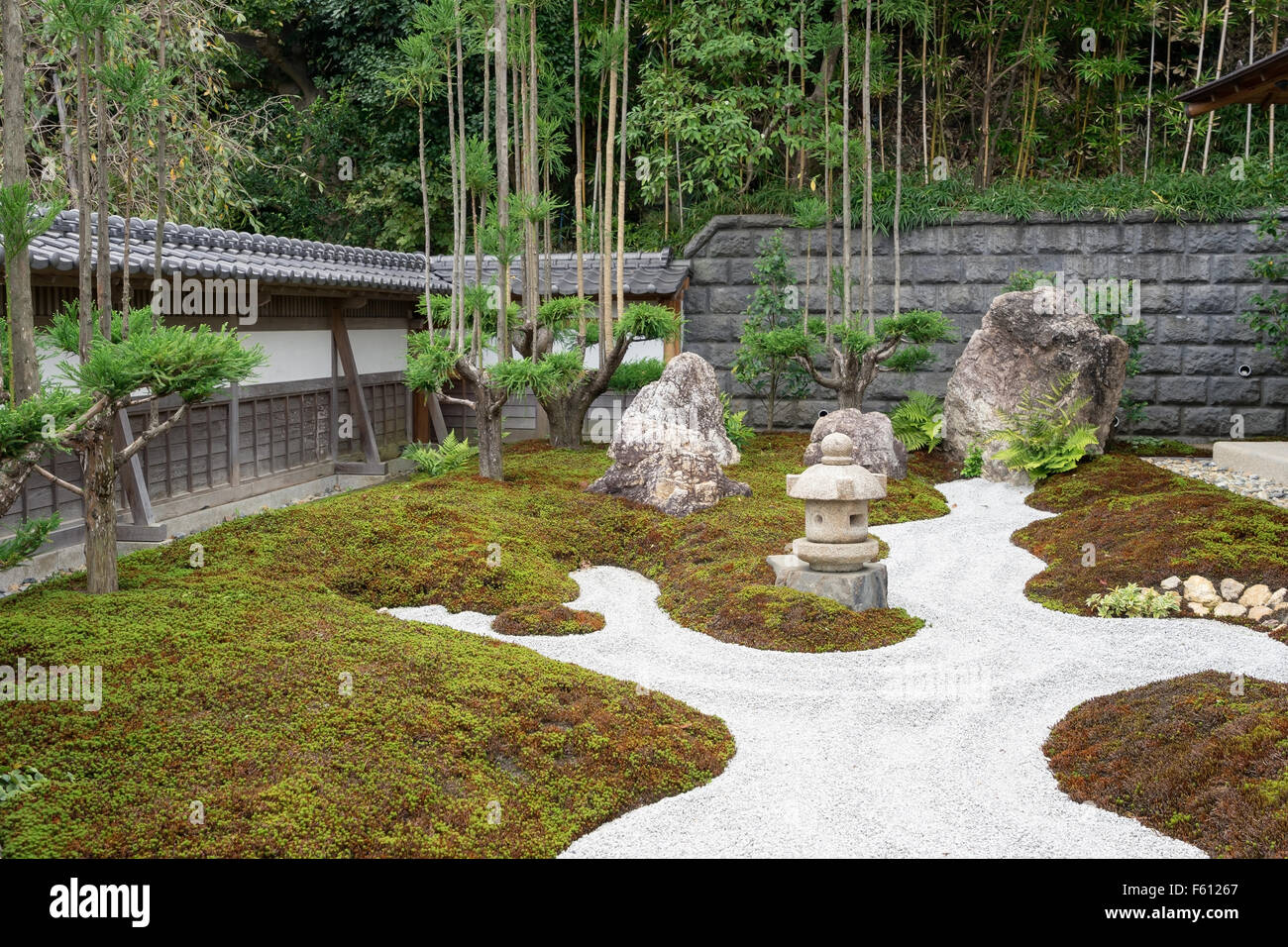
To fulfill the zen gardens purpose of providing a peaceful space pathways should lead to places to rest. Strategy for a Zen Garden Hardscape.

It introduces zen to any home and bring harmony to its surrounding.
Traditional zen garden. The traditional Zen garden was a walled-in space. The seclusion thus attained was conducive to meditation. For most homeowners building a masonry wall for a meditative space in the backyard is either undesirable or unaffordable.
Substitute a lattice fence to achieve inexpensive privacy. Consider this a separate project to be undertaken before. Traditional Zen Garden Ideas.
Zen gardens have become such a popular trend that its not unusual to see one surrounded by overwhelmingly western architecture. But the beauty and meditative quality of these gardens is only amplified by traditional Japanese home design. The garden closely resembles traditional Zen garden characteristics like minimal vegetation carefully raked whitish gray gravel.
The garden accommodates one large standing boulder and several smaller rocks spread out. The raking pattern of the gravel signifies waves in the ocean and look like ripples in a pong. A time to contemplate and reflect.
Therefore the essence of a traditional zen garden is about creation rather than landscaping. Taking time out to rake the white gravel of the dry landscape is a wonderful escape. What if you dont have the room.
A mini zen garden is perfectly possible since it is the action that is important. 4242017 Japanese garden is traditional garden aims at elevating the ideal nature of a far away place. It introduces zen to any home and bring harmony to its surrounding.
The garden usually does not use any artificial ornament. Instead it brings both the Japanese philosophy and aesthetic to highlight the natural beauty. 8172015 Relaxing Music - 3 HOURS Zen Garden.
Relaxing Asian Japan Chinese Zen Music. Music therapy for soul healingEnjoy Calm music for Meditation Sound ther. 12142014 2 hours of the Best Traditional Japanese Music Zen Music with Traditional Flute Koto Shamisen.
HttpbitlyRELAXINGTUBE- Visit RelaxingTube inFacebo. 1192017 Traditional Zen Gardens Japanese Rock Gardens or Dry Landscapes Historically the original Zen Gardens are created by the Buddhist monks as spaces for solitude and meditation that simultaneously represent the humans admiration for the beauty of nature. An inspired demonstration of the link between aesthetics and philosophy.
1282021 Karesansui RockDryZen Garden. Ryoanji Temple Zen Garden Kyoto. Alexandre Courbot at Flickr.
It represents the spiritualism of Zen Buddhism. It was formed by a Zen Buddhist monk called Musō Soseki. Instead of using water in this type of garden sand or gravel is used to represent river or sea.
ZEN GARDEN Soumendra Majumder Japanese Gardens Japanese gardens 日本庭園 nihon teien are traditional gardens that create miniature idealized landscapes often in a highly abstract and stylized way. The gardens of the Emperors and nobles were designed for recreation and aesthetic pleasure while the gardens of Buddhist temples were. 592019 Zen rock gardens are basically pond gardens without water.
Zen monks draw wavy patterns in the sand with a rake as a way to mimic undulating movements of streams. All the rocks in the garden also represent elements found in regular Japanese gardens such as islands mountains trees bridges and even animals. Strategy for a Zen Garden Hardscape.
When planning the bones of the garden emphasize simple natural materials like wood and stone used in. To fulfill the zen gardens purpose of providing a peaceful space pathways should lead to places to rest. Although the early.
Zen gardens are exactly what they sound like gardens that create feelings of relaxation and calmness. Typically zen gardens are found in spas resorts and other positive and relaxing environments. However homeowners are beginning to incorporate zen gardens.
Photo about Traditional japanese zen garden with rake and rocks. Image of east balance culture - 25342231.